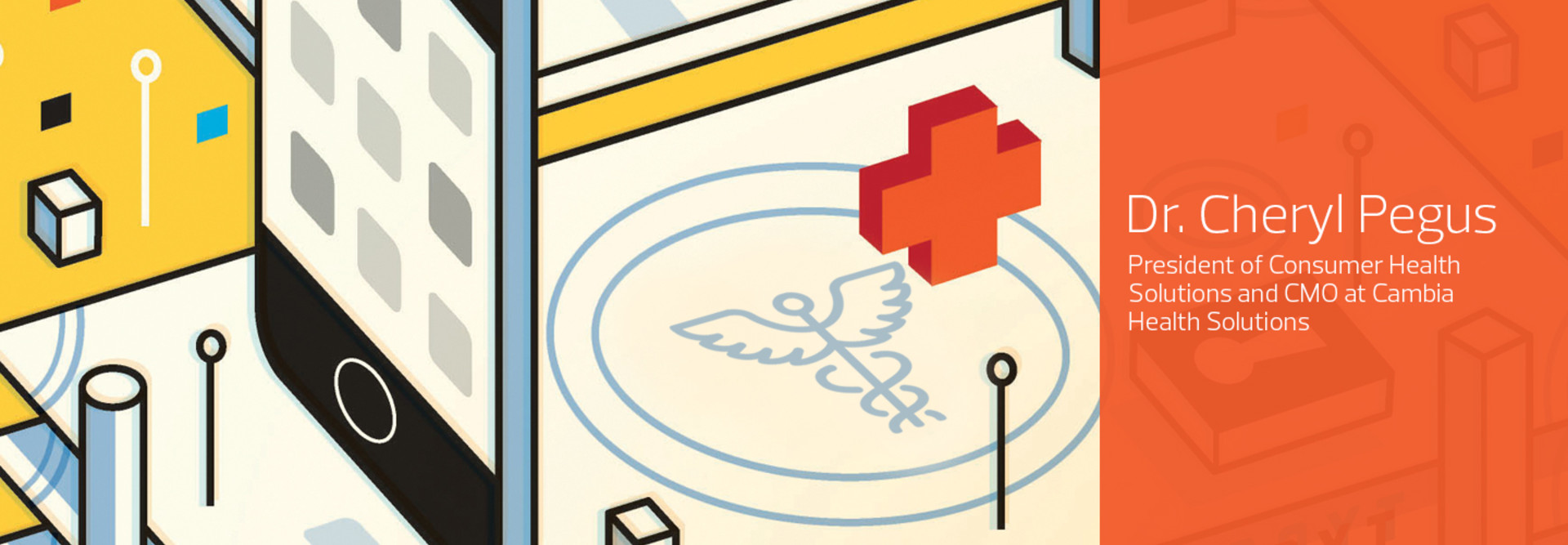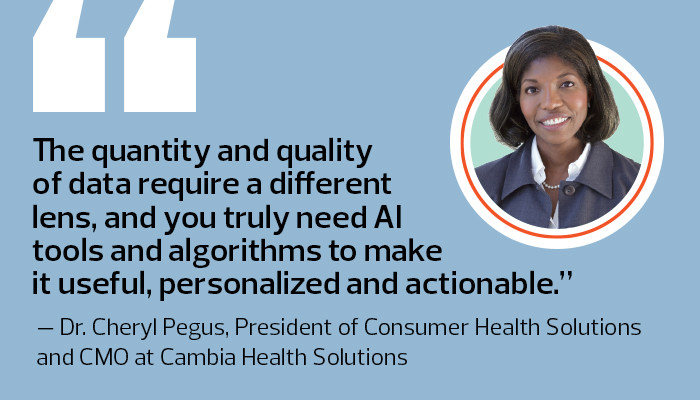HEALTHTECH: What is the CMO’s role in addressing technological changes in the industry?
PEGUS: CMOs must be evangelists in order to have physicians begin to utilize these technologies and trust them. They play an important role by making sure that they themselves understand the technology and are able to articulate what the clinical value proposition will be; however, on any given day, we all must recognize that today when a patient is sick, they want to see a physician, not a technology solution.
HEALTHTECH: How do you collaborate with different stakeholders to shape purchases and policies?
PEGUS: We have a solutions enterprise strategy shaped by our chief artificial intelligence officer and our CIO. We also have someone who leads our technology solutions, our CIO, an operations area and our actuarial, strategic finance and data analytics groups. We sit together as a team to explore how we strategically bring solutions to the fore, with the consumer at the center.
The actuarial finance lead will look at the overall cost implications as we look at the business case value for our physicians and health plan members. The AI lead might say that there are algorithms we can use for this particular solution. Those conversations happen every week.
READ MORE: Find out how healthcare organizations use AI to boost and simplify security.
HEALTHTECH: How do you meet the demands of a tech-savvy patient population?
PEGUS: I read journals and health IT materials. I also attend several conferences. We have a private equity business within Cambia called Echo Health Ventures, and we’ve invested in companies that are bringing in innovative solutions. Evaluating these companies and solutions by ensuring that there’s a value proposition for our health plan members is probably 20 to 25 percent of my job.












